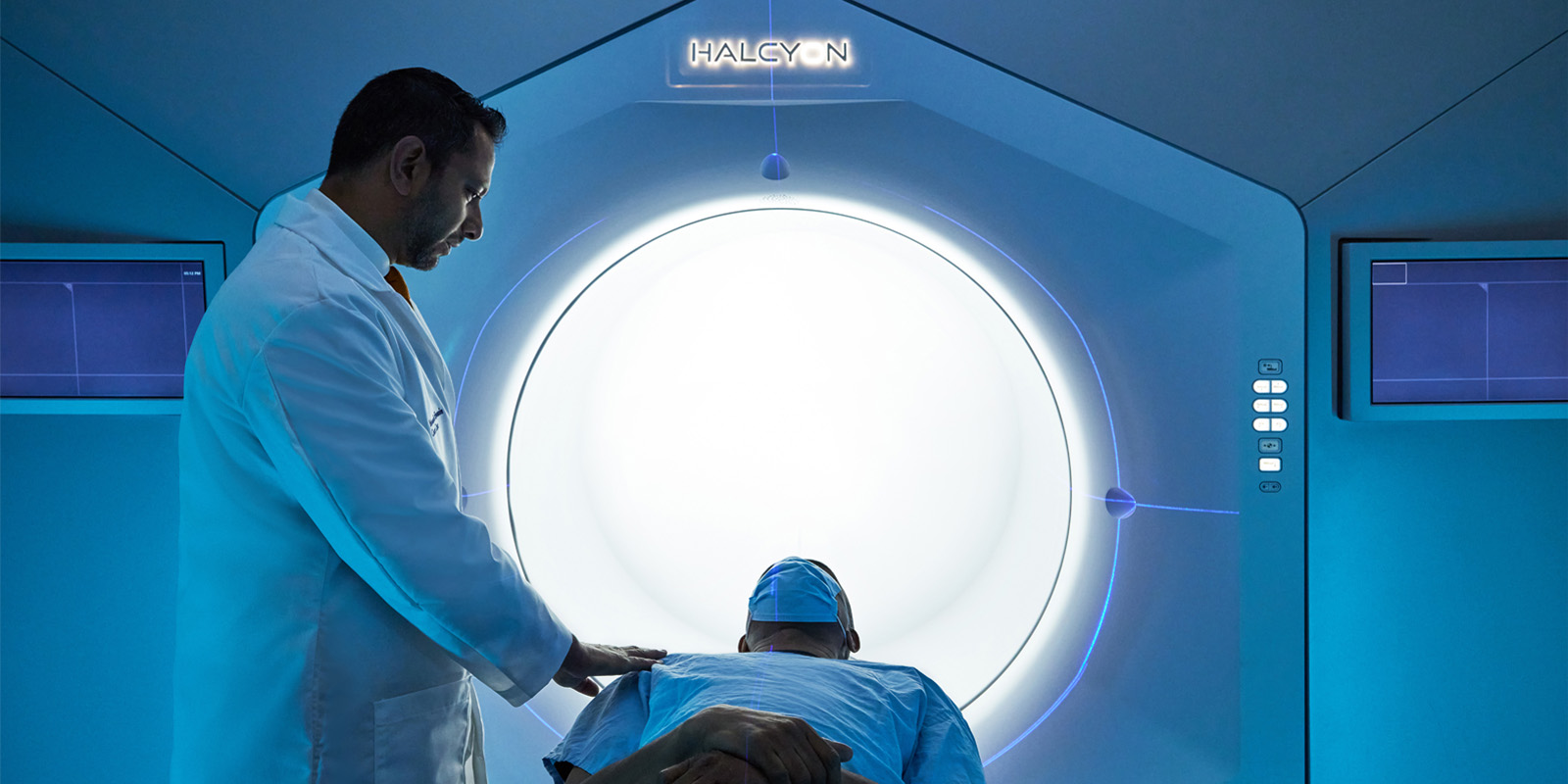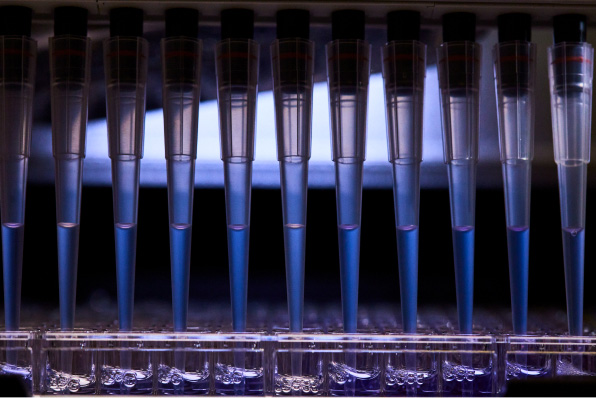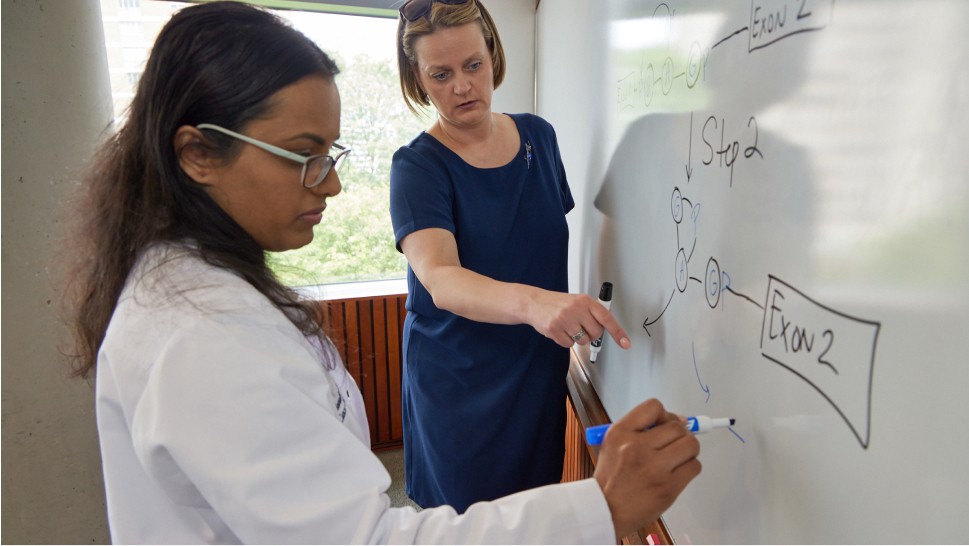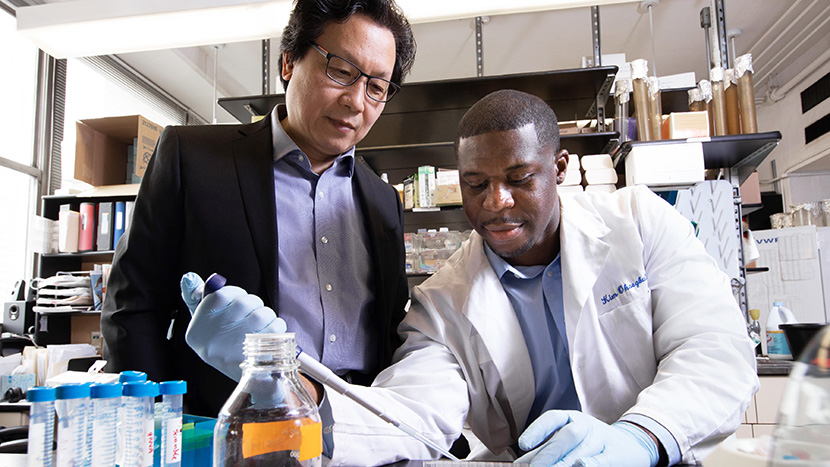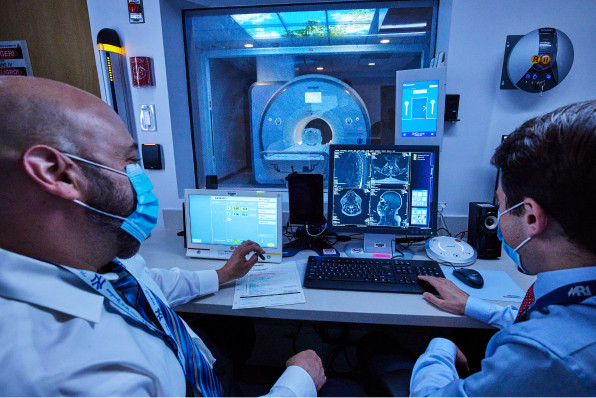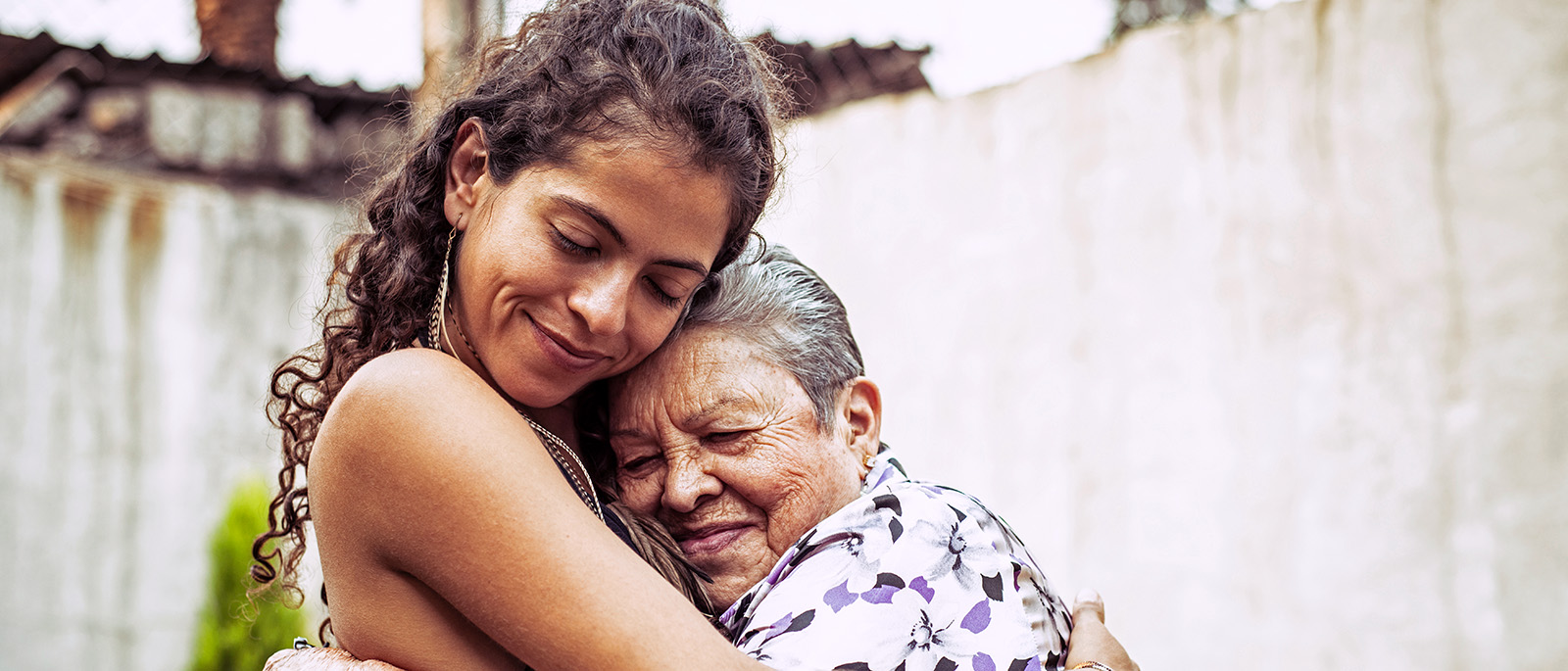At Montefiore Einstein Comprehensive Cancer Center, it’s our goal to minimize any symptoms or side effects you might experience throughout your cancer journey. Your team of highly experienced cancer care experts will provide comprehensive personalized care, lifestyle recommendations, and supportive programs and services to ensure you are as comfortable as possible, helping you maintain the highest quality of life at every step along your cancer journey.
Managing Cancer Pain
Pain is one of the most common symptoms of cancer. It’s also what many patients fear most about their diagnosis.
At Montefiore Einstein Comprehensive Cancer Center, our multidisciplinary care team focuses on relieving your physical symptoms while also offering compassionate, holistic support for your emotional, mental and spiritual wellbeing. Pain management and treatments to lessen and relieve other symptoms are available to anyone with cancer, from diagnosis through survivorship. Our team can connect you to a variety of healthcare providers and services that may help you live more comfortably, including:
- Acupuncture, a practice of traditional Chinese medicine that involves inserting needles into specific points on the body to stimulate pain relief
- Counseling to help with anxiety and depression
- Medications, including opioids, nonopioids and other drugs
- Nerve blocks, spinal analgesia and epidural injections, which deliver pain-relieving and numbing medicines to areas of the body
- Radiofrequency ablation, which eliminates cancer cells by delivering heat directly into a tumor that’s pushing on nerves causing pain
Cancer Treatment Side Effects
Cancer treatments like chemotherapy and radiation therapy can be very effective at eliminating cancer cells, but these treatments may result in a number of potential side effects. In many cases, we are able to provide medications that prevent or minimize side effects. Our nationally renowned experts will develop a personalized, effective treatment plan that’s tailored to your needs.
Chemotherapy Side Effects
Chemotherapy, or chemo, targets fast-growing cancer cells. This treatment can also affect hair follicles, blood-forming cells and the cells of your digestive tract.
Our specialized oncology dietitians offer nutrition and diet counseling that may help with digestive issues and ensure your body has the strength and nutrition needed to heal.
The following tips can help in managing common side effects of chemotherapy.
Constipation
- Avoid foods and beverages that can cause gas, such as broccoli and soda
- Be more physically active, if possible
- Drink eight to ten glasses of fluids each day, including 4 to 8 ounces of warm prune juice once or twice daily
- Include more fiber and fluids into your regular diet
Decreased Appetite
- Eat small, frequent meals
- Try to eat the most when your appetite is best
- Consume most of your calories at the beginning of your meal
- Drink fluids between meals rather than with meals
- Keep your favorite foods available at all times
- Fortify meals with butter, cheese, protein powder, eggs and dry milk powder to get more protein and calories
Diarrhea
- Avoid cream soups, fried foods, milk products, sandwiches and sweet desserts
- Drink small amounts of oral rehydration fluids throughout the day
- Eat foods like applesauce, rice, unsalted crackers and bananas to help solidify bowel movements
- Increase your daily intake of soluble fiber by adding foods like oats or flaxseed
Fatigue
- Consider cognitive behavioral therapy or talk therapy to address stress, anxiety or sleep problems
- Eat a healthy diet
- Get treatment for problems such as pain, depression or anemia (low red blood cell count) if they’re contributing to your fatigue
- Plan important activities for the times you have the most energy
- Track how your patterns of rest and activity affect your fatigue and adjust accordingly
- With your doctor’s guidance, exercise when you can
Hair Loss
- Protect yourself from sun damage by wearing a hat or scarf over your head when outdoors
- Consider wearing a wig or hairpiece—but be sure it doesn’t irritate your scalp
Mouth Sores
- Avoid spicy, salty and acidic foods
- Eat bland, soft foods that are easy to chew and swallow
- Practice good mouth care
- Try eating colder foods
Nausea & Vomiting
- Drink plenty of fluids
- Eat plain, cold or soft foods
- Eat small, frequent meals throughout the day
- Limit your favorite foods to avoid nausea
- Try ginger teas or ginger candies
Peripheral Neuropathy
(damage to nerves outside of the brain and spinal cord)
- Ask for help with difficult tasks
- Avoid alcohol
- Avoid anything that makes symptoms worse, such as tight clothes or shoes or hot or cold temperatures
- Exercise if your doctor says it’s ok for you
Radiation Side Effects
Radiation therapy side effects will depend on the type of cancer you have, how much radiation you receive and your overall health. Early on, fatigue and skin issues are the most common problems. You might also have challenges in the specific area being treated, like hair loss if you’re receiving radiation to the head. In some cases, radiation may increase your risk of developing additional cancers years down the road. Here are some self-care tips for side effects related to radiation therapy.
Fatigue
- Consider cognitive behavioral therapy or talk therapy to address stress, anxiety or sleep problems
- Eat a healthy diet
- Get treatment for problems such as pain, depression or anemia (low red blood cell count) if they’re contributing to your fatigue
- Plan important activities for the times you have the most energy
- Track how your patterns of rest and activity affect your fatigue and adjust accordingly
- With your doctor’s guidance, exercise when you can
Skin Problems
- Avoid putting anything on your skin, such as lotion, perfume, deodorants or powders, without checking with your doctor
- Avoid putting heat or cold sources (like heating pads or ice packs) on the affected skin
- Avoid scratching or rubbing the affected skin
- Avoid wearing tight, rough clothing on the area being treated
- Don’t shave affected skin without speaking to your doctor
- Protect your skin from sunlight
- Wash your skin with only lukewarm water and mild soap
Hormone Therapy Side Effects
Hormone therapy interferes with the action of hormones in your body. Doctors commonly use these treatments for breast cancer and prostate cancer.
Hormone therapy-related side effects may include:
- Breast tissue changes
- Decreased libido (interest in sex)
- Diarrhea
- Fatigue
- Hot flashes
- Mood swings
- Changes in menstrual cycle
- Nausea
- Vaginal dryness
- Weakened bones
Talk to your care team if you experience any of these issues. Your team can offer advice and guidance to address and in some cases prevent your symptoms.
Immunotherapy Side Effects
Side effects from immunotherapy may depend on the type of cancer you have and your treatment. In general, some of the more common side effects include:
- Arthritis
- Chills
- Constipation
- Cough
- Decreased appetite
- Diarrhea
- Fatigue
- Itching
- Muscle aches
- Nausea
- Rash
- Thyroid problems
- Vomiting
It’s important to inform your care team if you have any of these side effects or experience other unusual symptoms. Sometimes doctors will stop your treatment until your symptoms improve. They may also give you other medications to counteract your side effects. Acting quickly may help you avoid some of the rarer, more serious side effects, which can include:
- Colitis (inflammation of the colon)
- Hepatitis (inflammation of the liver)
- Kidney failure
- Myocarditis (inflammation of the heart)
- Neuropathy (nerve damage)
- Pancreatitis (inflammation of the pancreas)
- Pneumonitis (inflammation of the lung)
- Severe infections
- Severe skin reactions
- Type 1 diabetes
Surgery Side Effects
Common side effects of cancer surgery include pain, bleeding, blood clots, fatigue, infection and swelling. Your care team will take every precaution to reduce your risk. If any of these side effects occur, they’ll provide appropriate treatments.
Cancer Supportive Care
We know that dealing with cancer is challenging on many fronts. That’s why we offer a full spectrum of personalized care before, during and after treatment. As a world-renowned leader in providing social and psychological support to patients with cancer and their loved ones, Montefiore Einstein Comprehensive Cancer Center’s supportive care services are designed to help you manage the physical and emotional challenges at every stage of your cancer journey.
Cancer Rehabilitation Program
Cancer treatment can make the simplest things in life a challenge. Our Cancer Rehabilitation Program can help if you have complications related to your cancer or your treatment that make it hard to take part in life at home, at work or in the community. We can work with you from the time you’re diagnosed through survivorship. Conditions we address include:
- Chemotherapy-related nerve damage
- Cognitive problems
- Decreased exercise tolerance
- Diminished physical strength
- Fatigue
- Gait and balance problems
- Loss of fitness through lack of exercise
- Lymphedema, the build-up of fluids from blocked lymph vessels
- Osteopenia, the loss of bone mass
- Pain
- Reduced range of motion in joints
- Sensory deficits, the loss of senses including touch, taste and sight
- Speech difficulties
- Swallowing difficulties
Classes, Events & Support Groups
Throughout the year, we offer a number of excellent classes and events that provide helpful, evidence-based, accurate information about symptom management and wellness. Our support groups can also be a great place to get firsthand tips on coping with cancer from others who can understand and identify with what you’re experiencing.
Learn more about our classes, events and support groups.
Our mental health and wellness resources are an additional source of help for coping with cancer symptoms.
REACT Program
Our Reassessment and Evaluation After Cancer Treatment (REACT) Program is for survivors of childhood cancers. It’s designed to address the medical and psychological challenges childhood cancer survivors may experience later in life.
The REACT program provides long-term education, screening and treatment. It also offers workshops for patients who have completed treatment and their families. The topics we cover include wellness, nutrition, career development, school achievement and mental health.


